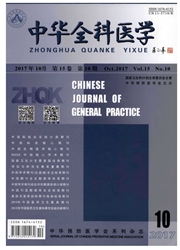

 中文摘要:
中文摘要:
目的对上海市各级医疗机构的健康管理类人才需求现状进行调研分析。方法采取多阶段PPS抽样调查法对全市100家机构进行问卷调查。结果①在岗基本情况:人才学历分布是以“本科为主”最高比例(68.33%),相关在岗人数以“1—2名”占最高比例(53.8%);相关岗位前3位专业分别是“临床医学”(64.4%)、“护理”(33.8%)、“卫生管理”(22.2%)。②人才要求:学历要求前3位分别是“本科为主”(53.3%)、“根据需要录用不同学历”(38.9%)、“录用大专”(15.6%);证书要求前3位分别是“大学英语四六级证书”(84.4%)、“岗位职业资格证书”(68.9%)、“计算机类证书”(31.1%);最看重的要素前3位分别是“专业技能”(100.0%)、“性格随和,有亲和力”(84.4%)、“学习成绩”(46.7%)。③人才培养需求:未来可设岗位前3位分别为“健康管理师”(84.4%)、“医疗秘书”(68.9%)、“医疗保险管理”(15.6%);需具备的职业能力前3位分别为“健康评估等”(92.2%)、“信息化建设与应用”(84.4%)、“医疗保险基础管理”(68.9%);未来3年内对健康管理专业人才需求量是“5~6名”占最高比例(61.5%)。结论建议在培养规模、专业定位、核心技能培养方面立足创新,优化上海市健康管理类本科专业人才培养质量。
 英文摘要:
英文摘要:
Objective To analyze the current situation of social needs for health managementprofessional talents in medical institutions at various levels in Shanghai. Methods The Probability Proportional to Size(PPS) sampling method was used to sample randomly 100 institutions from medical institutions in Shanghai to survey the social needs for health managementprofessional talents. Results (1)The general condition:in the distribution of education level," undergraduate" accounted for the highest proportion ( 68.33% ) ; in number of in-position, " 1 - 2" accounted for the highest proportion (53.8%) ;the top three proportions of position were:" clinical medicine" (64.4%) ," nursing" (33.8%) and "health management" (22.2%). (2)The requirements for the education level were successively "bachelor degree" (53.3%) ," according to different demands" ( 38.9% ) and "junior college" ( 15.6% ) ; The requirement for certificate were "College English Four Certificate" ( 84.4% ), "professional qualification certificate" ( 68.9% ) and "computer grade Certificate" (31.1%). The top 3 important elements were "professional skills"( 100.0% ), "easy-going personality" (84.4%) and "academic performance" (46.7%). (3) The requirement for training of professional talents:The top three future positions were "health management division" ( 84.4% ), "medical secretary" ( 68.9% ) and "medical insurance management" ( 15.6% ). The top three vocational capacity were "Health assessment, intervention, counseling, education and marketing" (92.2%) ,"Information-based construction and application" (84.4%) and "basic medical insurance management" (68.9%) ;the demand number for health management profession talents by each institution was "5 -6" (61.5 % ), which has the highest proportion in the next three years. Conclusion Training of professional talents should bring forth new
 同期刊论文项目
同期刊论文项目
 同项目期刊论文
同项目期刊论文
 期刊信息
期刊信息
